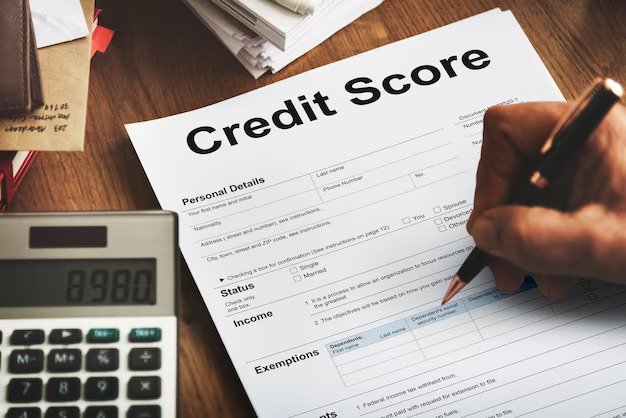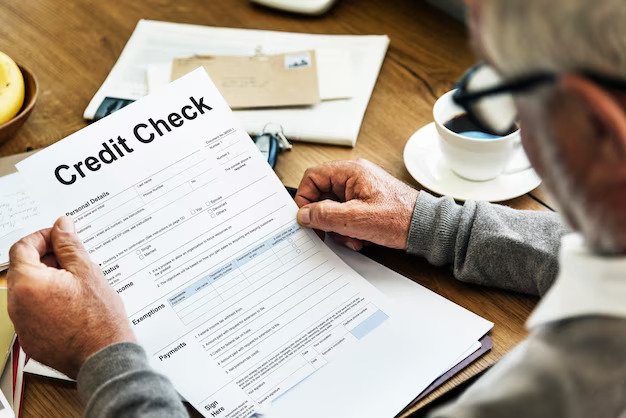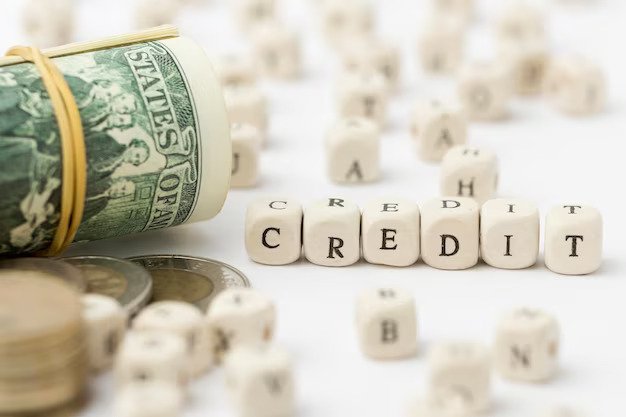In the world of personal finance, one metric plays a pivotal role in shaping your financial destiny – your credit score. This three-digit number wields the power to open doors to favorable loan terms, lower interest rates, and financial opportunities that can shape your future. In this comprehensive guide, we’ll delve into the intricacies of improving your credit score, step by step, illuminating the path towards financial success.
The Importance Of A Good Credit Score
Your credit score is not merely a number; it’s a financial reflection of your credibility and trustworthiness in the eyes of lenders. A good credit score is your ticket to financial freedom. It opens doors to lower interest rates on loans, credit cards with better rewards, and even potential employment opportunities. Conversely, a poor credit score can shut those doors, trapping you in a cycle of high interest rates and limited financial options.
How A Better Credit Score Can Save You Money
The correlation between your credit score and the interest rates you receive is undeniable. A higher credit score translates to lower interest rates, reducing the overall cost of borrowing. Over time, this can lead to substantial savings. For instance, when applying for a mortgage, a difference of even a single percentage point in interest can translate to tens of thousands of dollars in savings over the life of the loan.
1. The Roadmap To A Higher Credit Score

- Understanding Your Credit Score : Before embarking on the journey to improve your credit score, it’s crucial to grasp the fundamental aspects of this financial metric.
- What Is A Credit Score? : Your credit score is a numeric representation of your creditworthiness, typically ranging from 300 to 850 in the FICO scoring system. The higher your score, the more financially trustworthy you appear to potential lenders.
a. Factors That Influence Your Credit Score
- Payment History : Your payment history carries significant weight in determining your credit score. Consistently making on-time payments demonstrates reliability and positively impacts your score.
- Credit Utilization : Credit utilization measures the percentage of available credit you’re using. Maintaining a low credit utilization ratio is key to a higher score.
- Length Of Credit History : The longer your credit history, the more data creditors have to assess your financial behavior. A lengthier history can be advantageous, provided it’s positive.
- Types Of Credit Accounts : Having a mix of credit accounts, such as credit cards, installment loans, and mortgages, can improve your credit score.
- Recent Credit Inquiries : Frequent applications for new credit can raise red flags. Be cautious about opening new accounts too rapidly.
2. Assessing Your Current Credit Score

- How To Check Your Credit Score : Begin your journey by obtaining a clear picture of your current credit situation.
- Obtaining Your Credit Report : You’re entitled to one free credit report annually from each of the three major credit bureaus: Equifax, Experian, and TransUnion. Access these reports to understand where you stand.
- Reviewing Your Credit Report For Errors : Meticulously review your credit reports for inaccuracies or discrepancies that may be negatively impacting your score. Dispute any errors you find.
3. Creating A Credit Improvement Plan
- Setting Clear Goals : Define your credit score improvement objectives. Establishing a clear target can help keep you motivated throughout the process.
- Developing A Realistic Timeline : Improving your credit score is a journey, not a sprint. Set achievable milestones to measure your progress.
- Identifying Areas For Improvement : Analyze your credit report to identify areas that need attention. Whether it’s late payments, high credit card balances, or collections, pinpoint the areas where you can make the most significant improvements.
- Prioritizing Your Debts : Not all debts are created equal. Prioritize paying off high-interest debts and accounts with negative marks.
4. Managing Your Debt
- Strategies For Paying Down Debt : Consider popular debt repayment methods like the snowball and avalanche methods. Tailor your approach to your unique financial situation.
- Snowball Method : This method involves paying off your smallest debts first, gaining a sense of accomplishment and motivation as you progress.
- Avalanche Method : In contrast, the avalanche method tackles high-interest debts first, saving you more money in the long run.
- The Importance Of On-Time Payments : Consistently making on-time payments is a cornerstone of credit score improvement. Automate payments to avoid forgetfulness.
- Negotiating With Creditors : In some cases, you can negotiate with creditors to settle debts for less than the full amount. This can help you clear negative marks from your credit report.
5. Utilizing Credit Wisely

- Maintaining Low Credit Card Balances : Carrying high credit card balances can negatively impact your credit score. Aim to keep your credit utilization ratio low, ideally below 30%.
- Avoiding Maxed-Out Credit Cards : Maxed-out credit cards not only harm your credit score but also indicate financial stress to potential lenders. Keep balances well below your credit limits.
- Building A Mix Of Credit Types : A diversified credit portfolio, including credit cards, installment loans, and mortgages, can boost your score.
- Being Cautious With New Credit Applications : Each credit application results in a hard inquiry, which can temporarily lower your score. Avoid excessive applications.
6. Dealing With Negative Information
- Understanding The Impact Of Late Payments : Late payments can significantly damage your credit score. Prioritize making all payments on time to rehabilitate your credit.
- Handling Collections And Charge-Offs : Address collections and charge-offs promptly. Negotiate settlements if possible, and work on removing these negative marks.
- Disputing Inaccurate Information : If you find errors on your credit report, dispute them with the credit bureaus to rectify inaccuracies.
- How Bankruptcies And Foreclosures Affect Your Score : Bankruptcies and foreclosures have a profound impact on your credit score and may remain on your report for several years. Rebuilding after such events requires patience and strategic financial management.
7. Improving Your Credit Score Over Time
- Patience And Persistence : Remember that improving your credit score is a gradual process. Maintain patience and persist in your efforts.
- Tracking Your Progress : Regularly monitor your credit score and review your credit reports to track your progress and address any new issues promptly.
- Celebrating Small Wins : Every improvement in your credit score, no matter how small, is a step towards financial stability. Celebrate your achievements along the way.
8. Advanced Strategies For Credit Score Improvement

- Authorized User Accounts : Becoming an authorized user on a friend or family member’s credit card can help you piggyback on their positive credit history.
- Secured Credit Cards : Consider opening a secured credit card to rebuild credit. These cards require a deposit but can be a valuable tool for credit improvement.
- Credit Builder Loans : Some financial institutions offer credit builder loans designed to help individuals establish or rebuild credit.
- Professional Credit Repair Services (Pros And Cons) : Professional credit repair services can assist in dispute resolution and credit repair. However, carefully weigh the costs and benefits before engaging such services.
9. Maintaining A Healthy Credit Score
- How To Stay On Track Once You’ve Improved Your Score : After diligently working to improve your credit score, it’s crucial to maintain your hard-earned progress.
- Monitoring Your Credit Regularly : Regularly monitor your credit score and review your credit reports to ensure accuracy and address any potential issues promptly.
- Avoiding Credit Pitfalls : Steer clear of behaviors that can lead to credit score setbacks, such as late payments and maxed-out credit cards.
Conclusion
In the journey to improve your credit score, knowledge is your most powerful tool. Understanding the nuances of credit scores, identifying areas for improvement, and implementing sound financial practices can transform your creditworthiness. As you take action to bolster your credit score, remember that patience and persistence are your allies. Achieving your financial goals with a strong credit score is not just a possibility; it’s a tangible reality waiting to be realized.
Also Read : How Boat Loans Can Turn Your Seafaring Dream Into Reality
FAQs
1. How long does it take to improve my credit score significantly?
Improving your credit score can take several months to a year or more, depending on your starting point and the strategies you implement.
2. Can I improve my credit score if I have a history of late payments?
Yes, making on-time payments moving forward and addressing any late payments in your history can gradually improve your score.
3. Will closing credit cards with zero balances help my credit score?
Closing credit cards with zero balances can potentially harm your credit score by reducing your available credit limit.
4. Is it possible to remove negative items from my credit report?
You can dispute inaccuracies on your credit report and work with creditors to negotiate the removal of certain negative items.
5. How often should I check my credit score and report?
It’s a good practice to check your credit report annually and monitor your credit score regularly, especially if you’re actively working on improving it.
Source Image : Freepik.com